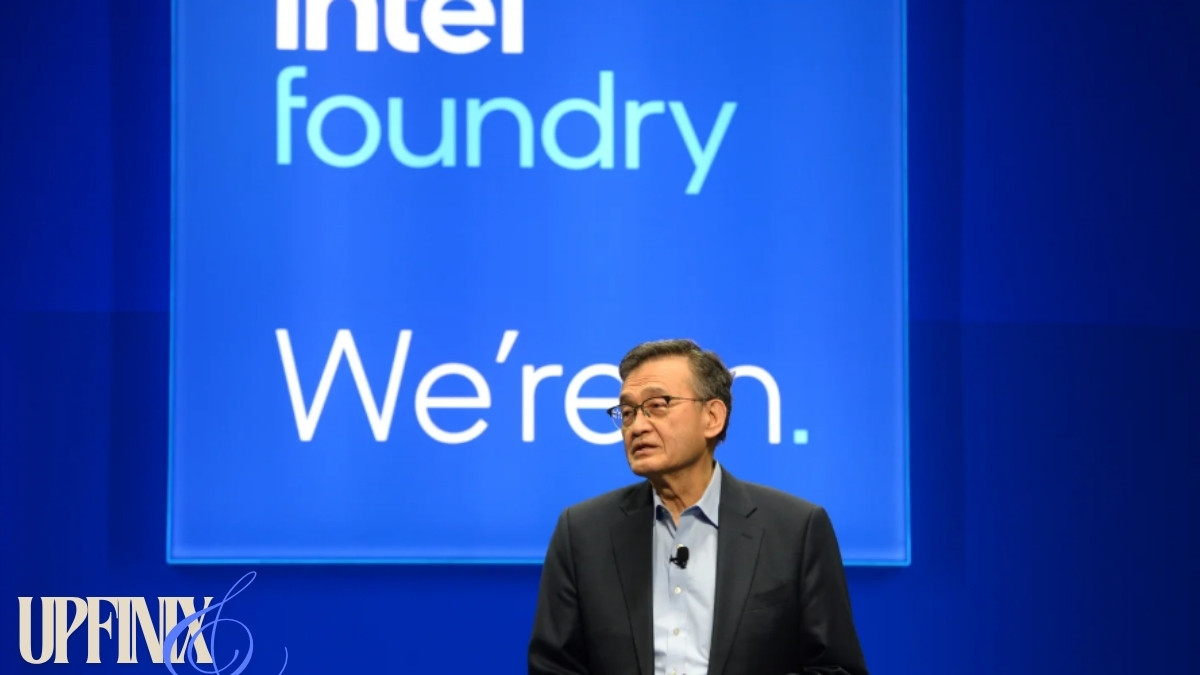Is Google stock a cornerstone of a modern investment portfolio, or is its golden era facing new challenges? For years, shares in its parent company, Alphabet Inc., have been a symbol of growth, innovation, and market dominance. Yet, as we navigate 2025, investors are grappling with questions about artificial intelligence disruption, regulatory pressures, and an evolving digital landscape. You might be wondering if now is the right time to buy, hold, or sell your shares in this tech behemoth.
This comprehensive guide cuts through the noise. We will delve deep into the google alphabet earnings report, dissect the difference between GOOGL and GOOG tickers, and analyze the forces shaping the alphabet stock price. By the end, you’ll have a clear, data-driven understanding of Alphabet’s financial health, its future growth engines, and the risks on the horizon, empowering you to make informed investment decisions.
Table of Contents
Understanding Alphabet: More Than Just a Search Engine
Before diving into financials, it’s crucial to understand the company you’re investing in. In 2015, Google underwent a major corporate restructuring to form Alphabet Inc. This move was designed to provide greater clarity and accountability for its diverse range of businesses.
Think of Alphabet as a massive holding company with two main parts:
- Google: This is the core business and the primary profit engine. It includes the vast majority of familiar products like Google Search, Android, YouTube, Chrome, and the rapidly growing Google Cloud.
- Other Bets: This is Alphabet’s venture capital arm, housing ambitious, long-term projects that could become the next Google. These include Waymo (self-driving technology), Verily (life sciences), and Wing (drone delivery).
This structure allows investors to see the profitability of the core Google services while understanding the scale of investment in speculative but potentially world-changing technologies.
GOOGL vs. GOOG: What’s the Difference in Tickers?
When you look up google stock, you’ll immediately notice two different tickers: GOOGL and GOOG. While their prices are nearly identical, a key difference lies in voting rights.
- GOOGL (Class A Shares): These shares come with one vote per share. If you want a say in corporate matters, such as electing the board of directors, this is the stock you’d buy.
- GOOG (Class C Shares): These shares have no voting rights. They were created during a 2014 stock split primarily to preserve the voting control of the founders, Larry Page and Sergey Brin.
- Class B Shares (Not Publicly Traded): Held by founders and insiders, these shares have 10 votes each, giving them ultimate control over the company’s direction.
For the average retail investor, the difference between GOOGL and GOOG is largely academic. Since it’s nearly impossible for public shareholders to sway a vote, most investors simply choose the ticker with slightly better liquidity or a lower price on any given day.
Dissecting the Alphabet Earnings Report: A Financial Health Check-Up
To truly gauge the strength of Alphabet stock, we must look at the numbers. The company’s quarterly earnings reports are the most critical documents for investors, providing a transparent view of its performance.
(Image Suggestion: A clean, modern chart showing Alphabet’s quarterly revenue and net income growth over the past 2 years.)
Let’s break down the key takeaways from the most recent Alphabet earnings report and the company’s overall financial trajectory into 2025.
Revenue Growth and Profitability
Alphabet continues to be a financial powerhouse. The latest Google earnings report for the second quarter of 2025 showcased robust growth, driven by a rebound in advertising and continued momentum in the Cloud segment.
Key Financial Highlights (Fiscal Year 2024 Summary):
| Metric | Amount | Analysis |
| Total Revenues | ~$350 Billion | Demonstrates sustained, powerful growth across all segments. |
| Net Income | ~$100 Billion | Highlights incredible profitability and operational efficiency. |
| Diluted EPS | ~$8.04 | Strong earnings per share, rewarding shareholders. |
| Dividend Initiated | Yes (in 2024) | A new development signaling financial maturity and commitment to shareholder returns. |
The google earning figures consistently beat analyst expectations, painting a picture of a company that is not just surviving but thriving. The initiation of a dividend in 2024 was a landmark moment, signaling to the market that Alphabet has matured into a stable, cash-generating machine confident in its long-term prospects.

Performance by Business Segment
Understanding where the money comes from is essential. Alphabet’s revenue is broken down into several key areas:
- Google Search & other: The crown jewel. This segment, which includes revenue from traffic generated by search properties and other services like Gmail, Maps, and Android, remains the largest contributor to Alphabet’s income. Its resilience is a key factor in the stability of the $GOOG stock.
- YouTube ads: A cultural and financial phenomenon. YouTube has become a primary driver of growth, competing directly with traditional television for advertising dollars. The GOOG earnings call frequently highlights the strength of YouTube Shorts in competing with platforms like TikTok.
- Google Cloud: The future growth engine. While currently third in the market behind Amazon AWS and Microsoft Azure, Google Cloud is growing at a faster rate than its core advertising business. It is now consistently profitable and is crucial to Alphabet’s long-term diversification strategy.
- Other Bets: The moonshots. This segment, including Waymo and Verily, currently operates at a loss. However, a single breakthrough here could create immense value, offering a high-risk, high-reward element to the Alphabet stock price.
The Future of Google Stock: AI, Autonomous Driving, and What’s New in 2025
While past performance is reassuring, investing is about the future. For Alphabet, the path forward is paved with artificial intelligence and other groundbreaking technologies.
(Video Suggestion: A short clip of Google’s CEO demonstrating the latest Gemini AI capabilities or a Waymo vehicle navigating a complex city street.)
The AI Revolution: Gemini and Beyond
Artificial intelligence is at the heart of Alphabet’s 2025 strategy. The company is locked in a fierce battle with competitors like Microsoft (backed by OpenAI) and Meta.
- Gemini AI: Google’s flagship multimodal AI model, Gemini, is being integrated across all its products. This includes powering “AI Overviews” in Search, enhancing creativity tools in YouTube, and boosting productivity in Google Workspace. The success of Gemini is directly tied to the future of google earnings.
- AI in the Cloud: Google Cloud is leveraging its advanced AI and machine learning capabilities to attract enterprise customers, offering powerful tools for data analysis, model training, and AI application development.
- Project Astra: Showcased as a “universal AI agent,” Project Astra represents the future of proactive, conversational AI assistants. Its development is a key indicator of Google’s long-term vision.
Waymo: The Long Road to Profitability
Waymo, Alphabet’s autonomous vehicle subsidiary, is arguably the leader in its field. In 2025, Waymo is expanding its fully driverless ride-hailing services to more cities. While it remains a significant expense within “Other Bets,” it represents a multi-trillion-dollar market opportunity. Investors in GOOG stock are patiently watching for Waymo to scale up and begin contributing positively to the bottom line.
Regulatory Headwinds and Competition
No analysis of google stock is complete without acknowledging the risks. Alphabet faces significant challenges:
- Antitrust Lawsuits: The company is battling major antitrust cases in the United States and Europe, with regulators scrutinizing its dominance in search and digital advertising. Unfavorable rulings could lead to massive fines or even forced changes to its business structure.
- Intensifying Competition: While Google Search remains dominant, AI-powered search engines like Perplexity and increased competition from Microsoft’s Bing are chipping away at its market share. In the cloud, the race with Amazon and Microsoft is relentless.

Frequently Asked Questions (FAQ) About Investing in Google Stock
1. Is Google stock a good long-term investment in 2025?
Investing in Google stock (either GOOGL or GOOG) for the long term is a decision that hinges on your belief in the company’s ability to innovate and maintain its market leadership. From a fundamental perspective, Alphabet presents a compelling case. The company’s core advertising business, anchored by Google Search and YouTube, is a formidable cash cow with a deep competitive moat. It generates hundreds of billions in revenue annually with impressive profit margins, providing the capital needed to fund future growth and return value to shareholders through buybacks and its recently introduced dividend. This financial stability provides a strong foundation for any long-term investment thesis.
The growth narrative for Alphabet is centered on two key pillars: Google Cloud and Artificial Intelligence. Google Cloud is rapidly gaining market share in the lucrative cloud computing industry and has finally achieved consistent profitability, signaling a major milestone. As more enterprises migrate their workloads to the cloud, this segment is poised for years of sustained growth. Furthermore, Alphabet is at the forefront of the AI revolution. Its deep investments in research and development, epitomized by its advanced Gemini models, are being integrated across its entire product ecosystem. This integration aims to enhance user experience, create new revenue streams, and defend its market position against disruptive newcomers. The “Other Bets” segment, while currently a drag on earnings, offers significant long-shot potential. A breakthrough in a field like autonomous driving with Waymo could unlock trillions in market value.
However, a long-term investment also requires acknowledging the risks. The most significant is regulatory scrutiny. Governments worldwide are concerned about Alphabet’s market power, leading to ongoing antitrust lawsuits that could result in substantial fines or forced divestitures. Additionally, competition in AI is fierce, with formidable rivals like Microsoft and emerging startups challenging Google’s dominance in information retrieval. A failure to stay ahead in the AI race could erode the profitability of its core search business. Therefore, a long-term investor in google stock is betting that its innovation, particularly in AI and Cloud, will outpace these significant regulatory and competitive threats.
2. Should I buy GOOGL or GOOG stock? Which is better?
The choice between buying GOOGL (Class A) and GOOG (Class C) stock is a common point of confusion for new investors, but for most people, the difference is negligible. The primary distinction lies in voting rights. GOOGL shares grant the holder one vote per share in corporate elections, allowing them a say in matters like the election of the board of directors. GOOG shares carry no voting rights. This structure was designed to ensure that Alphabet’s founders and early executives retain control over the company’s strategic direction, as they hold a special class of B shares with 10 votes each.
For the vast majority of retail investors, this distinction is purely academic. The number of shares an individual investor holds is typically too small to have any meaningful impact on a corporate vote, especially when insiders hold super-voting shares. Therefore, the theoretical power of a Class A share doesn’t translate into practical influence. The decision then comes down to other factors, which are also minimal. Historically, GOOGL has traded at a very slight premium to GOOG, reflecting the perceived value of its voting rights. However, this premium is often just a few dollars, and the two stocks move in near-perfect lockstep.
So, which should you buy? The most practical approach for most investors is to simply buy whichever of the two is trading at a lower price at the moment of purchase. You can also consider the liquidity, measured by trading volume and the bid-ask spread. Often, one may have a slightly tighter spread than the other, which could save you a few cents per share on a large order. Ultimately, worrying about the difference between GOOGL and GOOG is an over-optimization for most. Your investment’s success will be determined by the performance of the underlying Alphabet business, not by which class of shares you own.
3. What is the stock price prediction for Google in 2025?
Predicting the exact stock price for a company as large as Alphabet is impossible, but we can analyze Wall Street analyst targets and market trends to form a reasonable forecast. As of mid-2025, the consensus among financial analysts remains overwhelmingly bullish on Google stock. The majority of analysts covering $GOOG have issued “Buy” or “Strong Buy” ratings. The 12-month price targets from major investment banks and research firms generally fall within a range of $200 to $250 per share. These predictions suggest a healthy potential upside from its current trading levels.
The optimism driving these forecasts is based on several key factors. First, the resilience and continued growth of the digital advertising market, which fuels Google Search and YouTube, provides a stable and predictable revenue base. Second, the rapid expansion and increasing profitability of Google Cloud are seen as a major catalyst. As the Cloud division scales, it will contribute more significantly to Alphabet’s overall earnings, justifying a higher valuation. Third, and perhaps most importantly, is the enormous potential of Artificial Intelligence. Analysts believe that Google’s successful integration of its Gemini AI into its product suite will create new monetization opportunities and solidify its competitive advantages. The market is also pricing in the company’s commitment to shareholder returns, including its substantial stock buyback program and the recent introduction of a dividend.
However, investors should treat these predictions as educated estimates, not guarantees. The alphabet stock price could be negatively impacted by several factors not fully priced into these targets. A significant economic downturn could reduce advertising spending, hurting the company’s primary revenue source. Furthermore, an unfavorable outcome in one of its major antitrust cases could lead to a sharp decline in the stock price. Increased competition from AI-native search engines could also pose a greater threat than currently anticipated. Therefore, while the 2025 outlook is positive, investors should remain aware of these risks that could cause the stock to deviate from analyst predictions.
4. How do Google’s earnings reports affect the stock price?
The quarterly google earnings report is one of the most significant events for the Alphabet stock price. These reports, typically released in late January, April, July, and October, provide the most comprehensive update on the company’s financial health and are scrutinized by investors and analysts worldwide. The immediate impact on the stock price is often dramatic and occurs in the after-hours trading session right after the report is released. This volatility is driven by whether the company’s results meet, beat, or miss Wall Street’s expectations.
The three most-watched numbers in the google alphabet earnings report are revenue, earnings per share (EPS), and forward guidance. If Alphabet reports revenue and EPS that are higher than the consensus analyst estimates, the stock price will almost certainly rise. Conversely, if the results fall short of expectations (a “miss”), the stock is likely to fall, even if the company still grew year-over-year. The market is forward-looking, and prices are based on expectations. Perhaps even more important than the past quarter’s results is the company’s forward guidance. During the google earnings call, management provides an outlook for the upcoming quarter. A strong, confident forecast can send the stock soaring, while cautious or weak guidance can cause it to plummet, regardless of the current quarter’s performance.
Beyond the headline numbers, investors dig deeper into the report’s details. The segment-by-segment breakdown is crucial. Analysts look closely at the growth rates of Google Search, YouTube ads, and especially Google Cloud. A slowdown in Cloud growth, for instance, could spook investors even if the overall EPS beats estimates. They also analyze profit margins, traffic acquisition costs (TAC), and commentary on emerging businesses like Waymo. In recent years, any commentary regarding progress and competition in artificial intelligence has become a focal point, heavily influencing investor sentiment and the subsequent movement of the goog stock price.
The Verdict: Is Google Stock a Buy for Your Portfolio?
Alphabet Inc. stands at a fascinating crossroads in 2025. On one hand, it is a mature, incredibly profitable company with a fortress-like balance sheet, a dominant position in digital advertising, and a new commitment to shareholder returns via dividends. This profile appeals to conservative, long-term growth investors.
On the other hand, it is a company at the epicenter of the AI revolution, pouring billions into technologies that will define the next decade. Its success in the AI race and the growth of its Cloud segment provide a compelling narrative for investors seeking high growth.
Pros of Investing in Google Stock:
- Market Dominance: Unparalleled leadership in search, video, and mobile OS.
- Financial Strength: Massive cash flow, fortress balance sheet, and high profitability.
- Growth Catalysts: Rapid expansion in Google Cloud and deep investment in AI.
- Shareholder Returns: Robust stock buyback programs and a newly initiated dividend.
Cons of Investing in Google Stock:
- Regulatory Risk: Ongoing antitrust lawsuits pose a significant financial and structural threat.
- Intense Competition: Fierce rivalry in AI and Cloud from well-funded competitors.
- Innovation Risk: The “Innovator’s Dilemma” – protecting the core ad business could slow AI integration in Search.
- Valuation: As a mega-cap stock, it is unlikely to produce the explosive returns of a smaller company.
Ultimately, the decision to invest in google stock depends on your individual risk tolerance and investment horizon. The evidence suggests that Alphabet remains one of the highest-quality technology companies in the world. It possesses the financial resources, talent, and market position to navigate its challenges and capitalize on its opportunities. For investors with a long-term perspective, Alphabet stock continues to present a compelling case for inclusion in a diversified portfolio.









